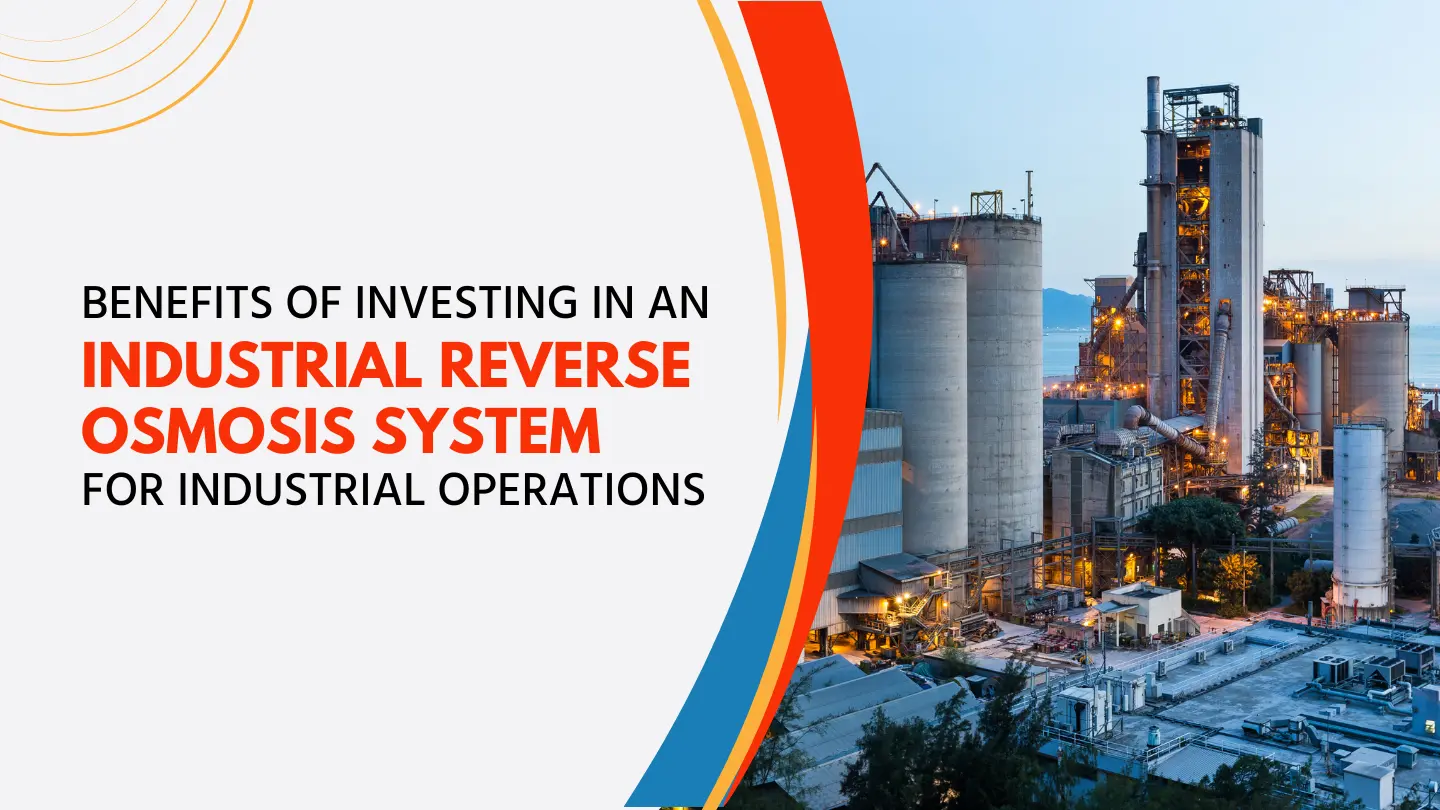The Benefits of Investing in an Industrial Reverse Osmosis System for Industrial Operations

In an era where water quality and conservation are paramount, industrial operations are increasingly turning to advanced technologies for solutions. An industrial reverse osmosis system offers one of the most efficient and effective methods for water purification, directly impacting a company’s productivity and sustainability practices. For industries ranging from pharmaceuticals to food processing, the implications of using reverse osmosis are substantial. Keep reading to discover how integrating an industrial reverse osmosis system can be a strategic move for your operation.
People Also Read?
Understanding Reverse Osmosis Systems and Their Function
At its core, an industrial reverse osmosis system is designed to remove impurities from water by forcing it through a semi-permeable membrane. This process filters out contaminants including minerals, bacteria, and chemicals, resulting in highly purified water. The system works under high pressure, which is key to overcoming the natural osmotic pressure and achieving the desired filtration level.
These systems can vary widely in size and capacity, catering to the specific needs of different industries. Efficiency is often a priority, and modern systems are engineered to minimize waste and maximize water recovery rates. The adaptability of reverse osmosis systems enables companies to use them for a broad array of applications, from rinsing in manufacturing to boiler feed water.
Implementation of an industrial reverse osmosis system is not a one-size-fits-all solution. It requires careful consideration of factors such as water source quality, desired output, and regulatory compliance. However, once configured properly, these systems serve as a cornerstone of an industry’s water management infrastructure.
People Also Read?
Cost Savings and Efficiency Gains From Industrial Reverse Osmosis Implementation
While the initial investment in an industrial reverse osmosis system may seem significant, the long-term cost savings can be quite substantial. By producing high-purity water on-site, companies reduce the need for outsourced water and the logistical expenses associated with its transportation and storage. Furthermore, the use of pure water in manufacturing processes often results in higher yields and fewer defects, leading to savings on materials and waste management.
Reverse osmosis systems are also engineered for efficiency. Modern systems often include energy recovery devices and low-energy membranes, mitigating operational costs associated with energy use. These advancements have made reverse osmosis a financially sustainable option for businesses looking to optimize their water usage.
The scalable nature of reverse osmosis systems grants them another economic advantage. As a factory’s operations grow, the water treatment infrastructure can be expanded to meet increased demand without the need for a complete system overhaul. This feature provides businesses with the flexibility to plan for their future while simultaneously managing present costs.
People Also Read?
Extending the Life of Industrial Equipment Through Superior Water Treatment
Water quality directly impacts the longevity and performance of industrial equipment. High concentrations of minerals and contaminants in untreated water can lead to corrosion, scaling, and biofouling of machinery. By integrating a reverse osmosis system, businesses provide their equipment with water that promotes optimal functioning and mitigates wear and tear.
The removal of corrosive agents ensures that boilers, cooling towers, and other critical machinery operate within safe and efficient parameters. This proactive approach to maintenance can drastically reduce repair or replacement costs. Additionally, less downtime is required for servicing, keeping production lines moving, and improving overall output.
Metals and mineral-sensitive processes, such as semiconductor manufacturing, benefit greatly from the high-purity water provided by reverse osmosis systems. Even minute levels of contaminants can cause defects in delicate manufacturing environments. Thus, industries that demand ultrapure water find reverse osmosis indispensable for their operations.
The Environmental Advantage of Utilizing Industrial Reverse Osmosis Systems
Beyond operational benefits, the integration of industrial reverse osmosis systems contributes to sustainability efforts. By purifying and reusing water on-site, companies reduce their reliance on local water supplies, which can have a significant environmental impact. The system’s ability to reclaim water that would otherwise be discharged as waste helps to lessen the strain on ecosystems.
Energy efficiency is another green credential associated with reverse osmosis systems. By employing state-of-the-art technology, these systems require less energy to operate compared to traditional water treatment methods. As industries seek ways to lower their carbon footprints, focusing on energy-efficient water treatment is a step in the right direction.
Overall, the strategic implementation of an industrial reverse osmosis system promises not only exceptional water purity but also long-term savings, enhanced equipment durability, and a positive environmental impact. As businesses adapt to a world that prioritizes efficiency and sustainability, the case for investing in such a water treatment solution becomes increasingly compelling.



